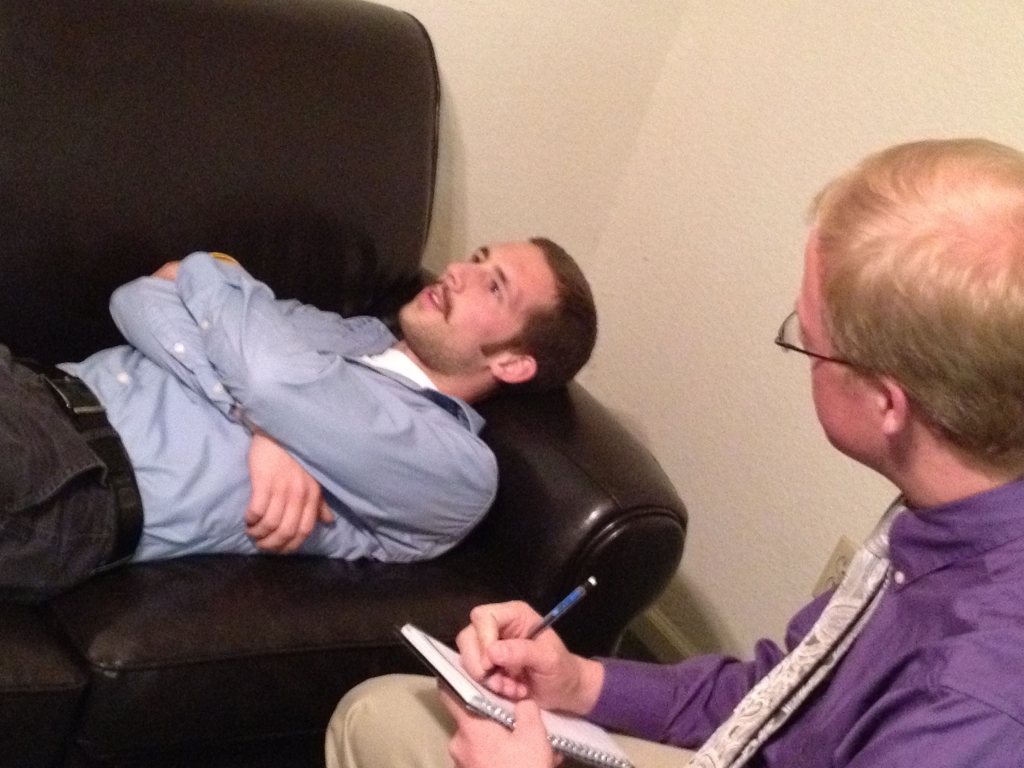-
Tips for becoming a good boxer - November 6, 2020
-
7 expert tips for making your hens night a memorable one - November 6, 2020
-
5 reasons to host your Christmas party on a cruise boat - November 6, 2020
-
What to do when you’re charged with a crime - November 6, 2020
-
Should you get one or multiple dogs? Here’s all you need to know - November 3, 2020
-
A Guide: How to Build Your Very Own Magic Mirror - February 14, 2019
-
Our Top Inspirational Baseball Stars - November 24, 2018
-
Five Tech Tools That Will Help You Turn Your Blog into a Business - November 24, 2018
-
How to Indulge on Vacation without Expanding Your Waist - November 9, 2018
-
5 Strategies for Businesses to Appeal to Today’s Increasingly Mobile-Crazed Customers - November 9, 2018
Talking to a Shrink May Not Work as Well as You Think
“Psychotherapy does work. It just doesn’t work as well as you would think from reading the scientific literature”, said study author Steven Hollon, from the Department of Psychology of the Vanderbilt University in Tennessee.
Advertisement
As an example, they point to one study that identified 74 placebo-controlled antidepressant studies that had been submitted to the US Food and Drug Administration (FDA).
For each treatment, researchers found that the apparent effectiveness was inflated by publication bias. “It’s like flipping a bunch of coins and only keeping the ones that come up heads”, Hollon says in a press release.
Citing PLOS ONE itself, an open access journal that is “committed to publishing study results without regard to their strength and direction”, as an example of how the culture around publishing negative studies is slowly changing, the authors nonetheless believe that there need to be more proactive steps taken to ensure that fellow scientists and the public are provided the clearest, unrosy, picture of scientific research.
The research team analyzed the results of 55 U.S. National Institutes of Health grants awarded from 1972 to 2008 to fund clinical trials of psychological treatments for depression. The grants were handed out for clinical trials of psychotherapy for depression.
It is surprising to know that results from almost 33% of these trials were never published, said Erick Turner, a psychiatrist and researcher at Oregon Health and Science University. Critics of antidepressants suggested people with depression to avoid drug treatment, on the basis of the new study.
Cognitive behaviour therapy- is a type of psychotherapy – created to treat depression and mental illnesses – helps patients understand the feelings and thoughts that influence behaviour or who is dealing with anxiety and depression.
That made no sense to Turner. “This article if anything kind of evens up the playing field”, he says.
“Our findings indicate that psychological treatment is efficacious and specific, but, as is the case for antidepressants, less than the published literature conveys”, the researchers, led by Ellen Driessen, wrote.
Advertisement
Interpersonal therapy focused on the interpersonal relationship of the patients’ life or problem area of patients, such as conflict between family and friends – focuses on social roles and behavior – or how depressed a person behaves with others? However, the efficacy of pharmacotherapy for depression has been overestimated due to publication bias. It’s a widespread problem throughout the research world, says Kay Dickersin, a professor of epidemiology at Johns Hopkins Bloomberg School of Public Health.





























